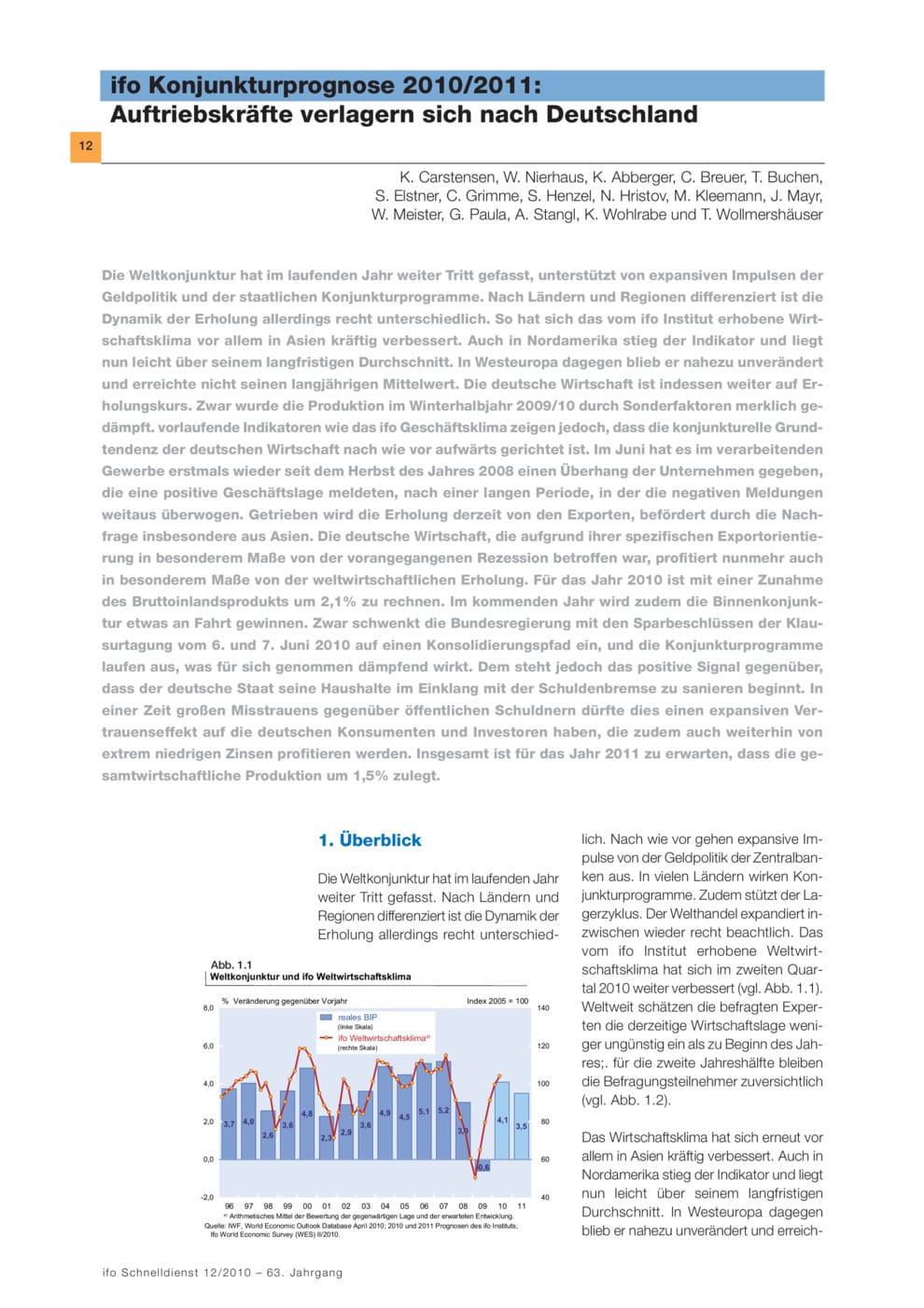Ifo Economic Forecast 2010/2011:Growth forces shift to Germany
ifo Institut für Wirtschaftsforschung, München, 2010
ifo Schnelldienst, 2010, 63, Nr. 12, 12-63

The world economy has gained traction this year, supported by expansionary monetary policy and government economic stimulus programmes. The dynamics of the recovery vary considerably according to countries and regions, however. Especially in Asia, the world economic climate measured by the Ifo Institute has improved greatly. Also in North America the climate indicator has risen and is now slightly above its long-term average. In Western Europe, on the other hand, it remains almost unchanged and has not yet reached its long-term average. The German economy, on the other hand, remains on a recovery course. Although output was noticeably dampened in the winter half year 2009/10 by special factors, leading indicators such as the Ifo Business Climate show that the basic tendency of economic activity is still directed upwards. In June a majority of firms in manufacturing reported a positive business situation for the first time since autumn 2008, after a long period in which the negative appraisals clearly predominated. The recovery is currently driven by exports, boosted by demand especially from Asia. The German economy, which because of its export orientation was particularly affected by the recent recession, is now profiting to a large extent from the world economic recovery. For 2010 a 2.1% increase in GDP is expected. In the coming year domestic economic activity will also gain momentum. To be sure, the German federal government during its closed meeting on 6/7 June 2010 embarked on a consolidation course and economic stimulus programmes are expiring, both of which taken alone have dampening effects. However, this is offset by the positive signal that the German state is beginning to consolidate its budgets in accordance with the balanced-budget stipulations ("debt brake") in the German Constitution. In a time of great distrust vis-à-vis public debtors, this might lead to a growth of confidence among German consumers and investors, who in addition will continue to profit from extremely low interest rates. On the whole, total economic output is expected to grow by 1.5% in 2011. The economic recovery will also positively influence the labour market. On average for the year, employment will increase by 80,000 and by 120,000 next year. Unemployment numbers will decline by 190,000 in both 2010 and 2011. The government budget deficit as a percentage of nominal GDP is anticipated to be 4.2% this year. Next year, as a result of the further economic recovery and a more favourable situation on the labour market, it will fall to 3.4% of GDP. The consolidation programme of the federal government will contribute noticeably to this development. The structural deficit will amount to 3.5% in 2010 and fall to 2.9% in 2011.